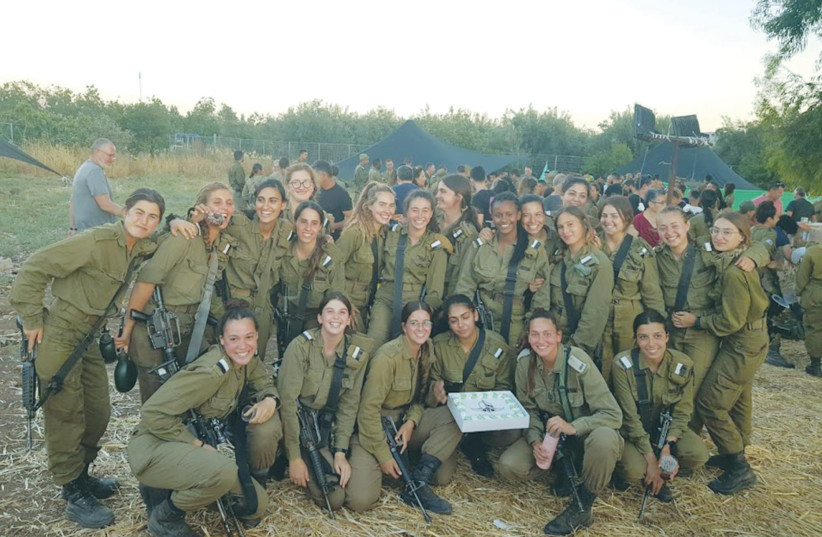When I visited my home in Hong Kong for the first time after drafting into the IDF, although already two years into my service, I worried about having to explain my decisions to my old high school friends once again. I knew that with every reunion I would have to explain why I was a combat soldier, what that really meant, and why, despite every horrifying story, I had shared about canned food and endless weeks of desert training exercises, I loved what I did.
I wondered how university had changed my friends’ perspectives and thought back to the endless debates and arguments we had, years before I had even considered drafting, about both Zionism and all things Jewish. We all grew up together in a Zionist, Orthodox Jewish day school, where Jewish students studied secular subjects together with their non-Jewish friends in a non-Jewish stream.
It was a unique place where Halacha was discussed in the hallways and Jewish boys were never seen without kippot on their heads. The school was one of the few places outside Israel where there was an accepted Jewish majority, while not being exclusively Jewish. Despite this majority, I was among the very few who drafted into the IDF after graduation and the only one who had gone into a combat unit.
Within the Jewish community itself, it was slightly easier as everyone knew someone else who had drafted and our conversations began with a level of mutual understanding as to what exactly it meant to be an Israeli and a Jew. I didn’t feel the need to justify that the gun strapped to my shoulder at all times was 100% for the sake of defending myself and all civilians, or that I knew that the people in my unit were good people with good intentions.
Within our Zionist community, this was all a given. Instead, we joked around about courses older Israelis from the community remembered taking during their service, such as navigation or the same running tests we were still given; and the conversation often moved toward how much they missed spending nights in the field with their old comrades.

When I finally met up with my old school friends in Hong Kong, despite all my concerns, I quickly found myself not only relieved but deeply moved and impressed by their perspectives. A non-Jewish, close friend of mine found a vegan restaurant and called me to make sure I was comfortable eating there in terms of Kashrut, as she remembered my dietary restrictions from high school.
My friends were, for the most part, just starting the third year of their undergraduate degrees, and beginning to look into either master’s programs or future careers. We talked about their lives, experiences, and plans; and I found myself briefly wondering where I could’ve been by now, had I not drafted. They also had endless questions about my life in the army and we all laughed about how different our lives were.
BUT ONCE we were done catching up, the conversation shifted toward Israel. My friend said that her closest friends in university were Jewish exchange students who she had met on her first day of class. She told me that they had actually bonded when she stood up in class and defended Israel. I found myself asking her a similar question that just about everyone else had asked me, “why did you feel the need to speak up?”
She explained that she had been shocked by the ignorance that most students displayed on the issue, and that through her years as a non-Jewish student in a Jewish school, although no one had ever pressured her to, she had learned to evaluate the bias and lies so often spread about Israel in the mainstream media.
She told me that when a classmate of hers had made comments about Israelis being murderers, she had told everyone that it could not possibly be true because two of her closest friends were soldiers in the IDF and would never do such a thing.
At the end of the night, while making plans to hang out again, I pulled her aside to express my gratitude. In many ways, her defense of Israel to non-Jews was so much harder than my job, where I was surrounded by like-minded people and given clear instructions on how to go about defending my country.
This encounter also made me reflect on the positive impact we had unintentionally made in high school, simply by having a diverse friend group. While to us it had been natural to share different aspects of our cultures with each other, it wasn’t until after I had left Hong Kong that I appreciated the impact my non-Jewish friends could have on divisive topics such as Judaism, the Holocaust, Israel and so many other aspects of our lives which are often misrepresented in the wider world.
And although it is often easier to surround oneself with one’s own community, simply by existing as a Jew and a Zionist around others can make a big difference.
The writer is a 20-year-old from Hong Kong. She made aliyah in July 2020 and is currently serving as a combat soldier in Isuf Kravi Unit 595 on the Syrian border.
